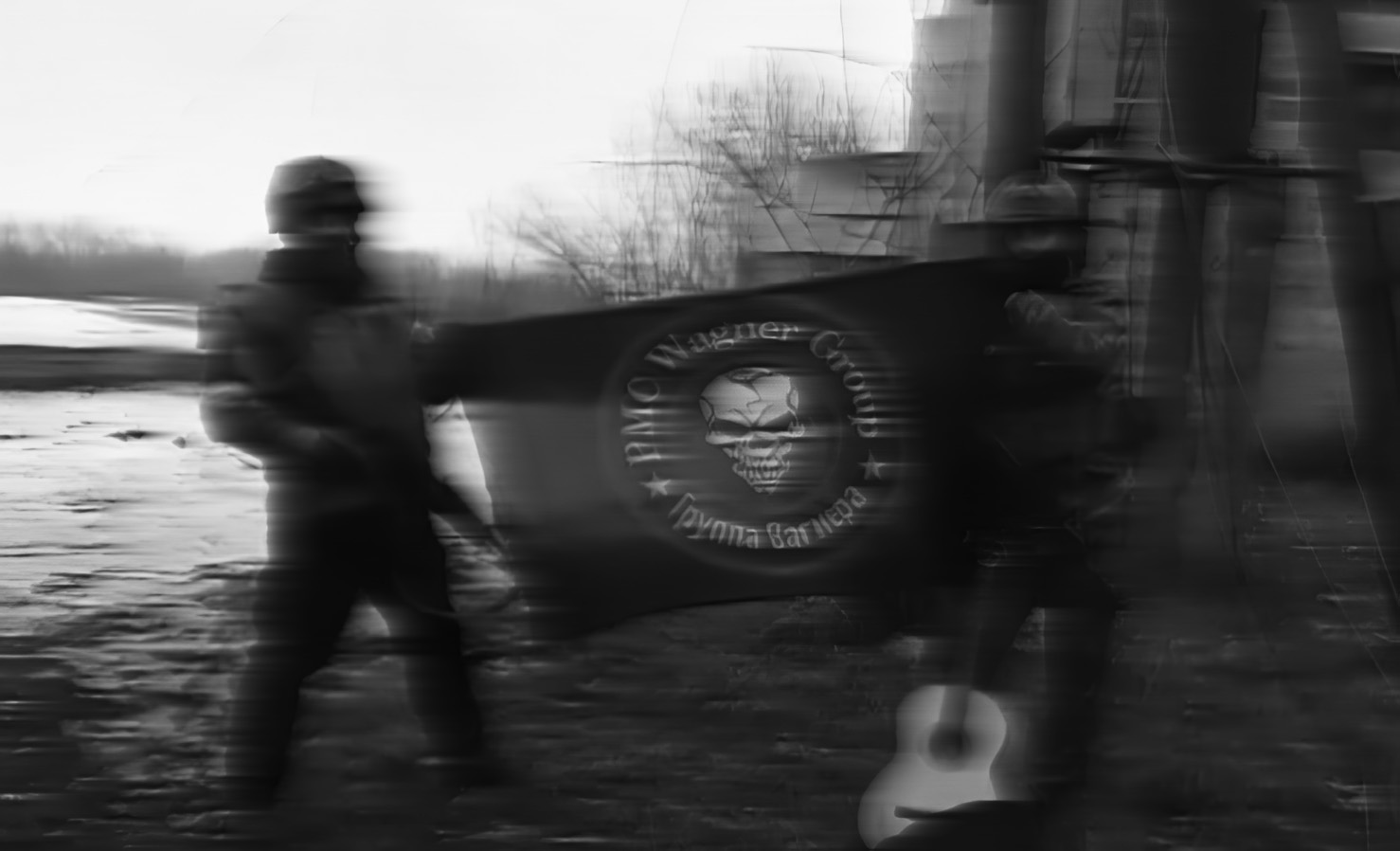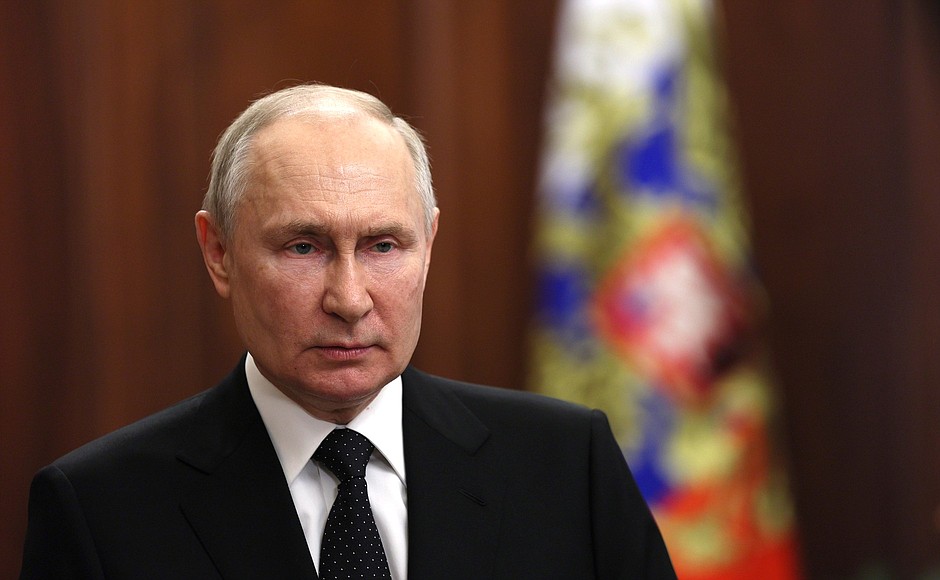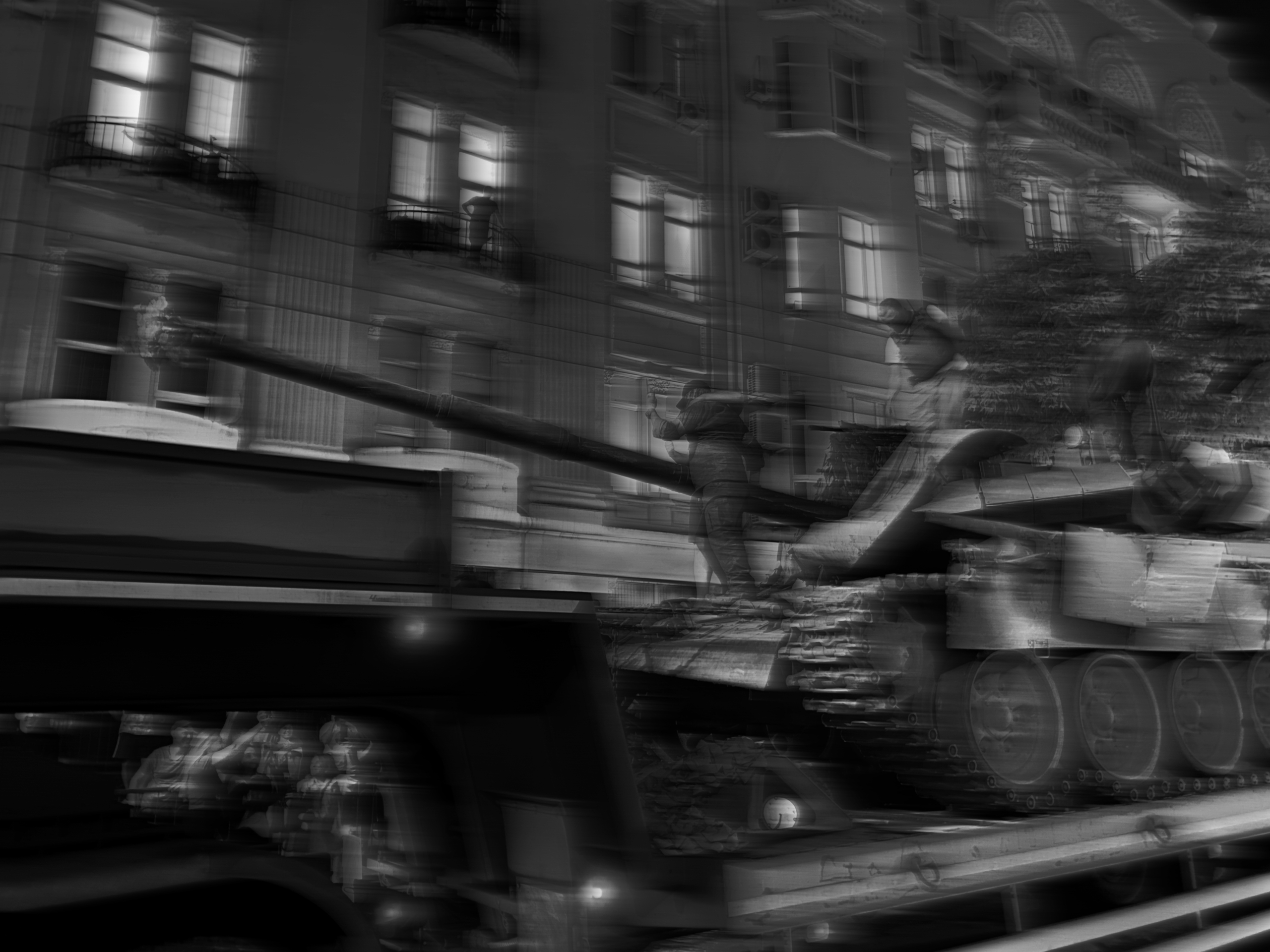With tensions from Yevgeny Prigozhin’s attempted coup mostly simmered out, I’m still left questioning the efficacy of my international relations degree.

By EVA HARTMAN
Editor’s note (Aug. 23): Wagner Group leader Yevgeny Prigozhin died in a helicopter crash northwest of Moscow, Russian authorities confirmed Wednesday.
Amid the angst of college admissions, most university admissions counselors (salesmen) fail to mention a potential negative return on your student loan investment: the risk of industry change.
In most fields today, it’s artificial intelligence: programs taking the place of paralegals, writing code and copy in seconds, suggesting crochet patterns, potentially posing a threat to national security, and generating videos of Joe Biden and Donald Trump playing UNO.
In international relations, however, it’s a coup that we probably won’t know the full story behind for decades.
Unfortunately for me, that’s what makes it fun.
On the night of February 24, 2022, I was in a basement classroom with a loose group of friends and peers, conducting what we call a “war room.” Huddled around a conference table, we shot retorts back and forth regarding the highly suspicious movement of Russian troops along the Ukrainian border: The risk of invasion was too high; no, they already took Crimea and we did nothing; Vladimir Putin doesn’t care about your neoliberalism, he wants land; they know we won’t interfere, this is all a bluff for better trade deals; they didn’t like that Volodymyr Zelenskyy took power; and so on.
We called it a night at around 10 p.m., and resolved to meet next week to discuss updates. As we lugged our backpacks onto our shoulders and conversation turned to weekend plans, every phone in the room buzzed in unison with the same New York Times alert. “Putin Announces Start to ‘Military Operation’ Against Ukraine.”
Not that it matters, but I thought Putin was bluffing.
Ever since that fateful notification, those of us who never miss an episode of Keeping Up With The Kremlin have agreed that there are few ways for Ukraine to claim success, the most tantalizing of which is the possibility that Putin could be removed from power by those in his inside circle. As a dictator trained by the KGB, it’s correct to assume that some kind of domestic insurrection or foreign force could never come close to ripping him away from his Black Sea mansion. He’s coup-proofed his government in true fascist fashion, keeping different internal factions at war with each other to discourage them from uniting against him. But one of his oligarchs with a shotgun? Now we’re talkin’.
So when it was announced that the Wagner Group was threatening to march into Moscow, my adrenaline started to spike.

Soldiers pose with the Wagner flag. (Wikimedia Commons)
I’ve long been fixated on the Wagner Group, an illegal and criminally underreported paramilitary force that only exists to do Putin’s dirty work: they’ve popped up in conflicts across Syria, Libya, the Central African Republic and Mali to ensure wins for whichever side of the conflict benefits Russia. Essentially, they fight where it’s too politically messy for Russia to formally get involved. The group operates above the law — both Russian and international — and members are trained in torture techniques, including beating captives to death with sledgehammers, boiling limbs, pulling out fingernails, burning enemies at the stake, and massacring entire villages. Putin has claimed that Wagner does not exist, while Russian state media has reported that Wagner had received nearly ten billion dollars in Ministry of Defense funds. Regardless of the budget discrepancies, they’re my real-life, much worse version of Criminal Minds.
That being said, when reports that Wagner was operating in Ukraine began to surface last August, I was stunned, yet again. Putin having his mercenary force operate in such a high-profile, Russia-connected conflict was a serious breach of IR210: everyone commits war crimes, just don’t make it public. It was practically an assurance that they would receive news attention and blow their cover, making it impossible for the group to operate in foreign conflicts ever again. More than anything, it was a major red flag to me on how desperate Putin was for victories.
But then again, the Wagner Group hasn’t always been the most subtle, and like Putin, they’ve rarely conformed to warfare norms. Yevgeny Prigozhin, a former hot dog stand owner who founded the Wagner Group, frequently indulges in lengthy rants on social media that give Ben Shapiro a run for his money.
Here’s the rundown: Wagner has been operating in Ukraine since at least December, when they made headlines for sending Russian serial killers into Bakhmut in exchange for release from prison (though I’d argue that their two failed assassination attempts on Zelenskyy are also noteworthy). Questionable policy aside, what most news coverage has gotten wrong is that these convicts are not the primary Wagner fighting force. Prigozhin, as I’ll dig into later, is deeply loyal to his soldiers, who are career assassins. The convicts are bodies for the Russians to throw at the front line (hence the line in their contract that specifies they need to survive for six months in order to win their freedom and… go back to murdering Russian citizens? I told you they don’t subscribe to logic.) Their brutal strategy in Bakhmut gained both attention from Western media and concern from Russia’s Ministry of Defense, and rumblings that the group was operating too far out of Russian control began. Earlier this summer the Ministry of Defense issued an ultimatum that caught even me off guard: The group was to be completely integrated into the Russian military, and mercenaries would be required to register as traditional soldiers. In true fashion, this was a policy that Prigozhin was not keen to swallow — as he made abundantly clear in yet another social media rant. At least I got that one right.
Prigozhin’s initial response — a peaceful promenade (with tanks) to Rostov-on-Don, a key Russian border city — more so resembled a desertion than a coup, with Prigozhin and his soldiers waking up one morning and walking away from their battle posts. (The Ukrainian front line had a field day with this, with videos surfacing of soldiers eating popcorn while watching the news of the ordeal unfolding; I also made popcorn for my MSNBC binge.) The original plan was to negotiate a change in the integration decision, until, as Prigozhin claimed, the Russians bombed the Wagner parade on their journey, killing several of their soldiers. Whoops! Change of plans: Hot Dog War Criminal Prigozhin is now going to take over the entire city and begin a march on Moscow, supposedly to remove Putin from power — and, I could only assume, from life — as revenge.

Putin giving an address June 24, calling the coup a “betrayal” tantamount to “treason.” (kremlin.ru)
It doesn’t take much to imagine me on the edge of my couch at 4 a.m. 50 years of international relations scholarship told me exactly how this was going to go. Prigozhin had serious inside backup, probably from within the Russian government, or even the CIA (as their history with revolutions in other countries might suggest). Maybe the military was on his side (he had already taken over one Defense Ministry outpost) and would swing open the gates of the Kremlin for him to strut inside. Conspiracy theorists online offered that Putin might already be dead, and Prigozhin was coming for the throne. What’s most important to understand is that a person does not try to overthrow the Russian government without knowing you’ll win — losing means losing your life and the lives of everyone behind you.
But look who sweeps in to save the day, 100 kilometers from Moscow! It’s a bird, it’s a plane, it’s …. Belarusian President and useless Russian lapdog Aleksandr Lukashenko?
Cue the side-eye. I mean, let’s just ignore IR 346, which essentially outlined the list of reasons why this guy’s a fraud: He came to power in a Russian-orchestrated sham election and spends his days taking orders from Putin on how to run his country. But, apparently, he called Prigozhin up and gave him a little pep talk (“Hey buddy, call this thing off and you guys can come hang out with me in Minsk!”). And then, more amazingly, Prigozhin accepted, Putin dropped all of the charges against him, he turned a convoy of nearly 5,000 soldiers around, and went home.
We probably won’t know the full story behind this coup for decades. Unfortunately for me, that’s what makes it fun.
These are the days I question the efficacy behind my degree. Then again, my IR classes couldn’t predict that a Russian general would get assassinated because he had the gall to publicly post the exact locations of his morning runs, either. Can’t blame a professor for missing that one.
We don’t know if Prigozhin ever had support inside the Russian government. My CIA theory was, however, ruled out, because the State Department had to call the Russian government during the coup and tell them that they didn’t have anything to do with it. Whether Lukashenko was acting on his own, on orders from Putin, or alongside Prigozhin from the start is a secret that may be only revealed long after us undergraduates have died. Hot Dog Man, for his part, is still on the run, and most Wagner soldiers have made it to Belarus, where they’re training the Belarusian army (cue a collective, exhausted sigh from NATO). Some appear to be gathering on the Polish border, but the one thing in which I am completely confident at this point is that they won’t mess with the Poles.
The Wagner coup is one of those fantastical non-events that, for all of its inaction, makes international relations so captivating. I enjoy comparing it to the Cuban missile crisis: nearly two weeks of indescribable tension, the established truths of modern society balancing on a precipice, and then… nothing. Everyone turns around and goes home. The world keeps spinning, and the public will only know the full story when relevant documents are declassified a hundred years from now.
So, for what it’s worth, I’ll keep predicting. I’ll keep hosting my war rooms, playing God with battalions on my hand-drawn maps. I’ll riffle through research paper after research paper, praying that another scholar has the answers even though I know our conjectures will never be definite. This is a field where we can’t run controlled trials or devise infallible proofs to explain what we see. We instead must blindly ascribe paradigms to attempt to categorize a human psyche that is constantly shifting, and theories can only give us a glimmer of future possibility based on historical precedent. After three years of PDF arguments and footnotes quoting Khrushchev and Kennan, Russia’s revolution-that-never-was serves as a terrifying, but thrilling, reminder: The real thing will always be so much more exhilarating. ❋
Eva Hartman is the news assignments editor at the Daily Trojan. She is a rising senior majoring in international relations and legal studies.

